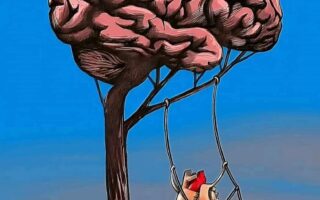Dependence is a psychological or emotional reliance on others for support, authentication, or accomplishments.
Dependence takes a dark turn when it breeds feelings of inadequacy or apprehension in the absence of others. This often rears its head in romantic, marital, or social alliances. Unhealthy dependence leads to co-dependency, a dangerous game of sacrificing one’s needs to meet others’ expectations or desires and stifling personal growth with gross imbalances. For instance, constantly seeking validation from a partner or feeling lost when they are not around are signs of unhealthy dependence.
Healthy relationships are a delicate dance in which both parties support each other while maintaining and respecting individual identities and boundaries. This reassuring balance fosters growth and mutual respect.
The state of necessitating or craving somebody and something is Dependent.
Having significant influence, authority or value over a person is Important.
Developing dependence on bed tea, a Vodka shot, a fag or a handful of drugs is common and rampant. How about developing Dependence on a particular person or relationship for happiness? — the most lethal proposition rather foolish.
Dependence can be Emotional or Physical.
Implying that “Psychological dependence” is less severe than “Physical dependence” is a myth; in reality, these two don’t exist as mutually exclusive categories and cannot be contrasted as if they exist separately. Physical dependence is more worldly than emotional dependence.
Angad was depressed and gloomy because his girlfriend and other associates didn’t visit him while he was undergoing a surgical procedure in the hospital. Why do we relate our emotional needs to physical requirements and become unhappy and sulk? – Why did Angad’s happiness depend on his friends when his needs were adequately cared for by the hospital personnel? “Learn to carry yourself on your back. People will drop you quicker than they picked you up.”
Each person has intrinsic value, and recognising this worth is not just positive; it’s empowering. Give importance to those who matter and value your intellect and calibre. Set healthy boundaries, and remember, “The more importance you give, the less important you become.”
‘Giving Importance’ is about recognizing and valuing the contributions of others, while ‘Feeling Important’ is about one’s sense of self-worth and value. A sense of diminishing importance in a relationship, where one’s contributions are not acknowledged or valued, is a sign that it may be time to reevaluate the relationship.
Some people falter in making decisions on trivial matters concerning their professional and personal lives and beg for superiors’ advice. Their minds are immature when deciding things emphatically, and they need a shoulder to fall upon. This is a personality trait, a sort of mental illness – ‘Surviving in Dependency’. The irony is that guidance is sorted from people who do not have to deal with the results. STEVE JOBS said, “Don’t let the noise of others’ opinions drown out your inner voice — Your time is limited, so don’t waste it living someone else’s life; Try to be your own before you can be another’s.”
Dependency is usually rooted in childhood. A child grows up in an atmosphere where his emotions are blatantly ignored and punished, giving him low self-esteem, helplessness, shame and incapability to take care of himself. Eventually, he becomes emotionally dependent for life, needing immense reassurance and mental support from partners and friends. He creates a hell for himself and doesn’t let his relationships live in peace.
Some characters in society envisage making people depend on them. They are cunning sadists, opportunistic, and, in a way, they love to exploit. Such people have a nasty childhood, broken homes, and scarred parenthood— to quench their emotional void, they play ruthlessly with vulnerable people’s sentiments who keep giving out of modesty and humility.
Alen Cohen wisely said, “For everyone, you create to be dependent on you; you are equally dependent on them. Neither relationship is healthy.” This quote highlights the mutual nature of dependence in relationships. It suggests that when one person becomes overly dependent on another, it can create an unhealthy dynamic where both parties rely on each other rather than fostering independence and growth.
The Interdependency of heart and mind.
The heart and mind profoundly depend on each other. This fashions our perception and shapes our response . . .
* Balanced decision-making — The Heart instigates empathy, compassion, and emotional intelligence in decisions. The Mind utilizes logic and reasoning, adding appropriate analysis and clarity. Together, they nurture thoughtful decisions and rationality.
* Emotional vigour – The mind regulates emotions and prevents impulsive outbursts. The heart guides the mind towards meaningful and purpose-driven choices. There is an overall mental and emotional well-being.
*Stress management – Profound resilience exists when the heart and mind work together.
*Intellectual understanding – A balanced cooperation and collaboration fosters a deeper and more nuanced understanding of people and life.
* Personal growth—Growth is holistic learning from life’s lows and highs. The heart and mind complement each other, creating harmony for an affluent life.
You come closer to you when the mind and heart start functioning in ‘Intellectual Unison’ and ‘Emotional Harmony’. Dependence on the outside world distances one from oneself. Growth flourishes when lessons are taken from mistakes and triumphs. People are like shadows which live in the dark, making you sullen and lonely.
“Don’t be the person who needs someone; be the person who someone needs”.
…………………………..




Very well said and explained 🙏
Thanks a lot for the appreciation…. regards
Wonderfully explained
thanks a lot, Rupa jee. I am glad that you liked my thoughts.
Nice thoughts
Became a philosopher
thanks dear. A philosopher? right!!!
[…] can tolerate the stench and the ghastliness of your hidden skeletons. That person is undoubtedly your most trustworthy who loves you despite the knowledge of the treasured […]
thanks